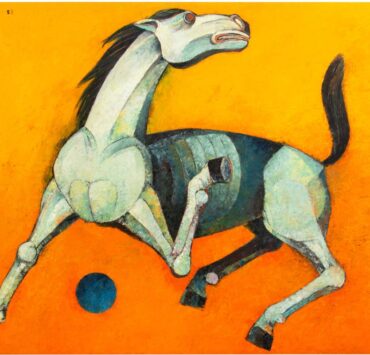Classical music brings joy to inmates
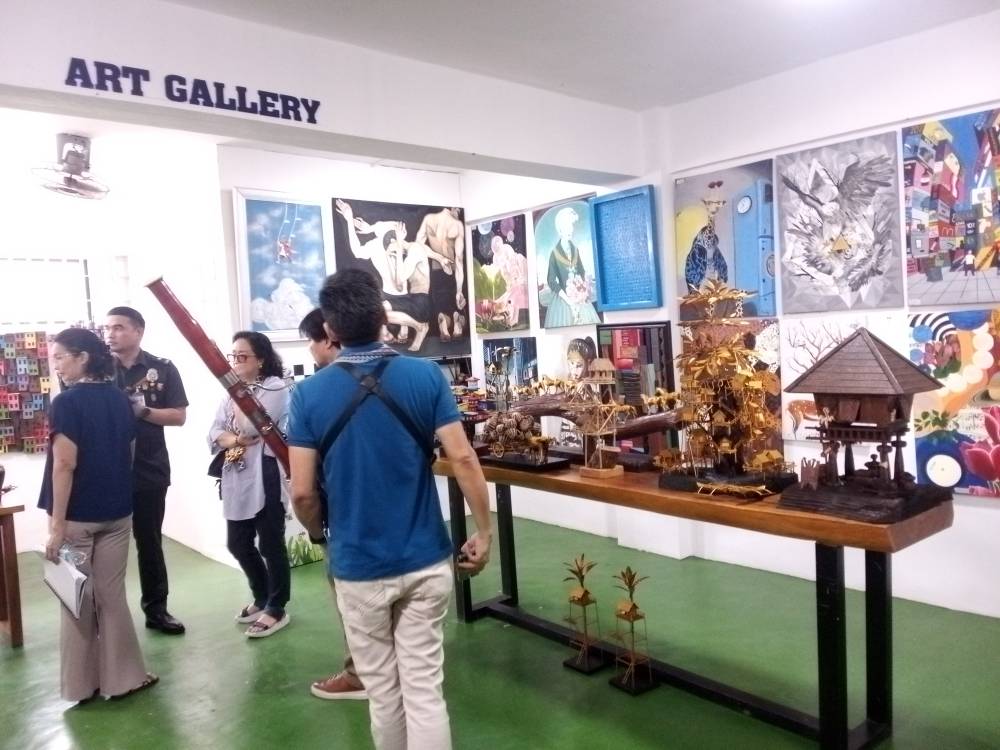
In a remote forested area in Lipa City, Batangas, you will come upon several structures with interiors which could be described as “a clean well-lighted place,” as Hemingway would have said in one of his short stories. A shed is brightly painted with “The Hope Project.” On the buildings are festive works of art which could have come from gifted children. There is an art gallery on the second floor, with attractive, decorative mini-sculptures and paintings done by the residents; these are for sale. The artists’ working area is on the first level.
Only the barbed wire and high walls announce the kind of place that this is. “It’s a jail facility,” says the warden, Maj. Aris Williamere Villaester, a graduate of the Philippine National Police Academy in Silang, Cavite. This is Lipa’s city jail, “male dormitory,” of the Bureau of Jail Management and Penology.
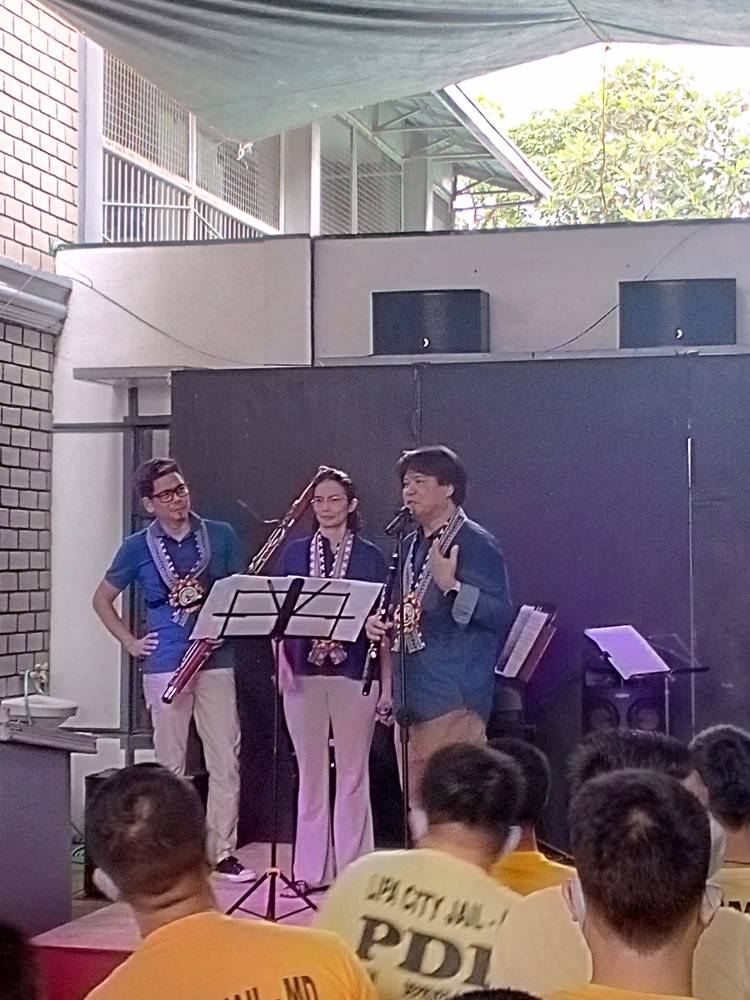
Polite, personable young staffers—so different from the roughnecks you see in movies—in gray uniforms greet you and lead you to the office of the warden, which is the den of a cultured man. There are hardbound books on the shelves, fiction as well as nonfiction. The novels are popular bestsellers, no serious stuff. Among the titles I saw: “My Life” by former US President Bill Clinton; “Taliban” (back in power in Afghanistan); and “Bay of Pigs,” a reference to the disastrous invasion of Castro’s Cuba during the early 1960s.

“There are more books upstairs,” Villlaester said casually.
The warden is a friend of renowned pianist Mariel Ilusorio, who has done outreach work with the prisoners here. And it was he who asked Ilusorio to introduce the inmates to classical music. The pianist readily agreed and brought along two distinguished musical colleagues—flutist Antonio Maigue and bassoonist Frenvee Andra.
All three are highly qualified in their “craft and sullen art.” Ilusorio has long been an outstanding pianist who in earlier days won competitions in Europe. Maigue, a graduate of the University of the Philippines College of Music, trained for one year in Paris under Jean-Pierre Rampal. Andra is a leading member of the Philippine Philharmonic Orchestra, a resident company of the Cultural Center of The Philippines.
Where’s Elvis?
And so, one fine day, everything was ready for the mini-concert.
The inmates strode in one by one, in their orange and yellow uniforms, quiet and disciplined. The music lined up for the event was definitely not Elvis Presley’s “Jailhouse Rock.” As Maigue explained to me, “I wanted to expose them to this kind of music, not the usual.”
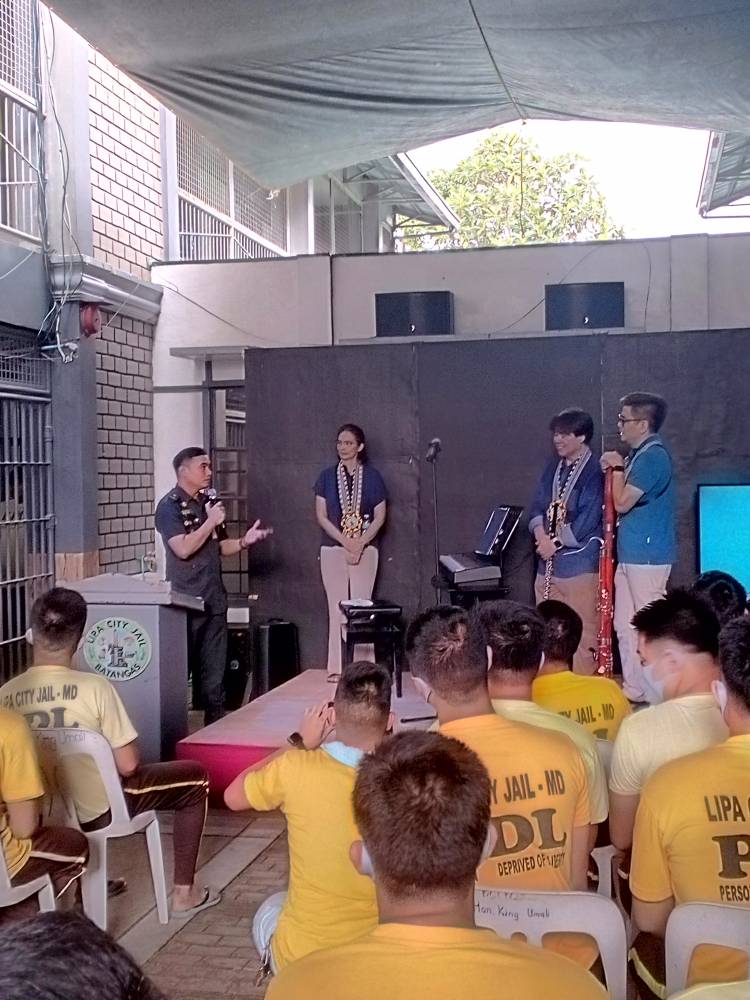
A compromise was made, however, with OPM. George Canseco’s “Gaano Kadalas ang Minsan” and Ernani Cuenco’s “Nahan” were played. There was also a jazz piece, trio (piano, flute and bassoon) by Chick Corea, known to jazz aficionados as the composer of “Spain,” the jazz version of Joaquin Rodrigo’s “Concierto de Aranjuez.”
A contemporary piece was “Oblivion” (1982), a tango composition by the Argentine composer Astor Piazzolla. But the bulk of the repertoire was classical: “Fantasie” by Gabriel Fauré, for flute solo, and the formidable Trio (piano, flute and bassoon) by the great Beethoven.
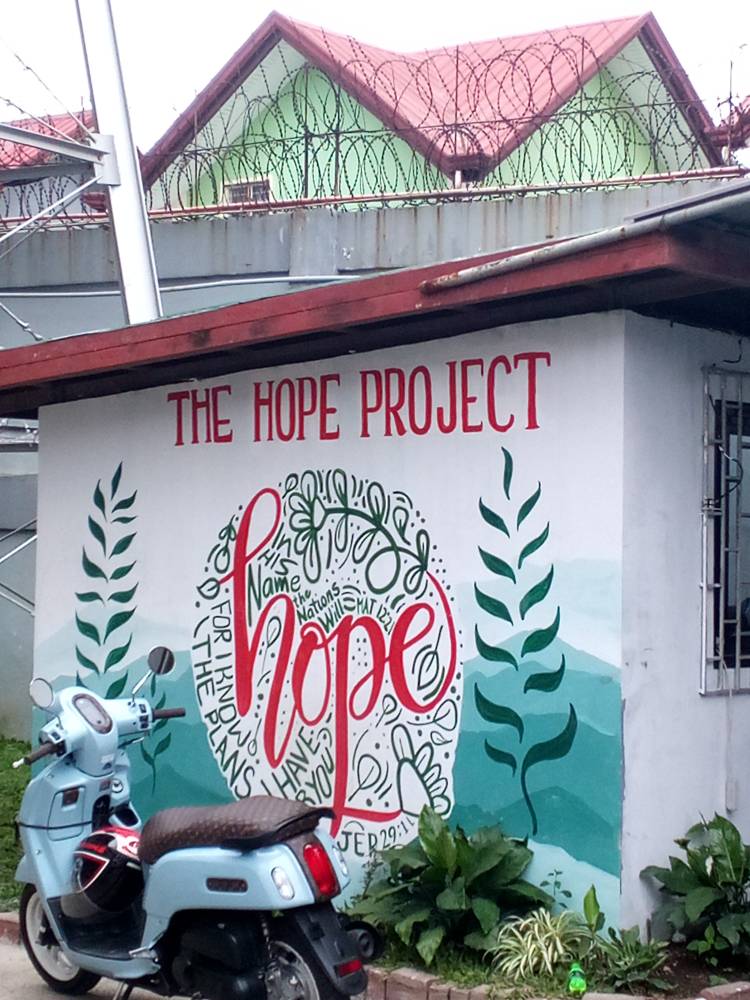
At the end, Ilusorio, Maigue and Andra were given a standing ovation by the inmates along with the uniformed criminology interns who sat in the back rows. The program host asked Ilusorio if it was true that music can transform lives. “Definitely,” she replied. On that positive note, the concert came to a close, beginning and ending with Canseco’s “Gaano Kadalas ang Minsan.”
While the three were performing came a query on Facebook: “Can they perform in Gumaca (Quezon) district jail?” The trio could not promise but indicated they would at least consider the request.
Folks, the line for applicants’ forms is on the left.















